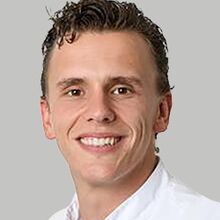Essential skills and career prospects for early career scientists
Meral Akçay, Lucy Mosscrop, Marco Goeijenbier
Welcome to ESWI Airborne, the podcast of the European Scientific Working Group on Influenza. In this episode, we explore essential skills and career prospects for early career scientists as part of our three-part series on life as a scientist.
Joining us in this podcast are three remarkable guests:
Meral Akcay, a global influenza expert and former ESWI board member, who discusses her transition from academia to the pharmaceutical industry and the key skills that have propelled her career.
Lucy Mosscrop, a passionate science enthusiast and PhD candidate at Imperial College London, focusing on RSV research. Lucy shares her aspirations and the valuable skills she has found beneficial throughout her journey.
Marco Goeijenbier, an ESWI board member and clinician with a dynamic career in research, who emphasises the importance of curiosity and mentorship in navigating the competitive landscape of scientific careers.
Together, they will delve into their unique journeys, the challenges they face, and the advice they offer to those just starting out in science. Whether you're a budding scientist or simply curious about the field, this episode provides a wealth of knowledge to guide you on your professional path.

Passion for people, virology and music! I am a people person who thrives from making connections between diverse, enthusiastic people to enable progress in the communities where I live and work.
Then comes my passion for learning, understanding and teaching others about viruses, mainly about influenza. About the fascinating ability of Influenza viruses to escape the immunity or become unpredictable. My work has taken me from Anatolia to the United States and now to France and hundreds of places in between, all in an effort to do my part in improving public health by bringing my expertise in vaccine development and sharing my knowledge about influenza with all relevant stakeholders to increase disease awareness and prevention.
And finally, music which is my refuge from busy everyday life, and which I believe has the magic power that connects people, and repairs souls. I sing when I need to find my way to my soul, and when I feel home-sick I play my baglama, an Anatolian folk music string instrument.

Lucy Mosscrop is a final year PhD student in the group of Professor John Tregoning at Imperial College London, co-supervised by Professor Maria Zambon (UK Health Security Agency/UKHSA) and Professor Peter Openshaw (NHLI, Imperial College London). Her work is supported by the Health Protection Research Unit in Respiratory Infections in collaboration with UKHSA.
Lucy’s research focus is on respiratory syncytial virus (RSV) specifically the fusion or F protein and how it has evolved and may continue to evolve as new interventions are implemented. As part of this work, she has collaborated extensively with UKHSA to help set up an improved RSV whole-genome sequencing assay (WGS) which has since been used to sequence over 1000 RSV-positive clinical samples from the UK (data available on GISAID). She is using this surveillance data to screen for potential RSV monoclonal antibody resistance mutations and test the biological consequences of these changes via reverse genetics systems. Ultimately hoping to establish a pipeline of surveillance, phenotyping and continuous monitoring.

Nationality: Dutch
Position: Intensivist, Spaarne Gasthuis, Amsterdam, The Netherlands; and Senior Scientist, Erasmus MC, Rotterdam, The Netherlands
Research fields: Special interest in acute care and infectious diseases
ESWI member since 2016
Marco Goeijenbier completed his Ph.D. in virology, focusing on "Haemostasis and Virus Infection," at Erasmus University Rotterdam in 2015. He currently serves as a specialist in acute internal medicine and critical care at Spaarne Hospital in Haarlem, The Netherlands. His expertise spans various aspects of infectious diseases, particularly in critical care medicine and viral infections. In addition to his clinical work, Goeijenbier holds a research position at Erasmus MC in Rotterdam, where he mentors PhD students exploring critical care medicine and viral infections. His research interests focus on severe acute respiratory infection (SARI) pathogenesis, epidemiology, and their interaction with the coagulation system.
Some of Goeijenbier’s most published articles include:
- Presence of procoagulant peripheral blood mononuclear cells in severe COVID-19 patients relate to ventilation perfusion mismatch and precede pulmonary embolism
- Determinants of vaccination uptake in risk populations: A comprehensive literature review.
- Benefits of flu vaccination for persons with diabetes mellitus.
- Early Patient-Triggered Pressure Support Breathing in Mechanically Ventilated Patients with COVID-19 May Be Associated with Lower Rates of Acute Kidney Injury
Dr. Goeijenbier is ESWI’s lead member and Chair in the Influenza Diabetes Community (IDC). The IDC connects leading diabetes, patient, scientific, and professional organizations around the common aim of protecting persons living with diabetes from influenza and other viral respiratory diseases like COVID-19.
Starting January 2023, Dr. Goeijenbier has taken on the role of Chair of Medical Research and Education at Spaarne Hospital. Furthermore, since January 2024, Marco is the Editor in Chief for Nature Springer Tropical Diseases, Travel Medicine, and Vaccines.




